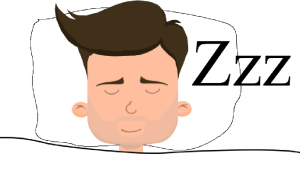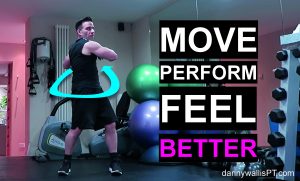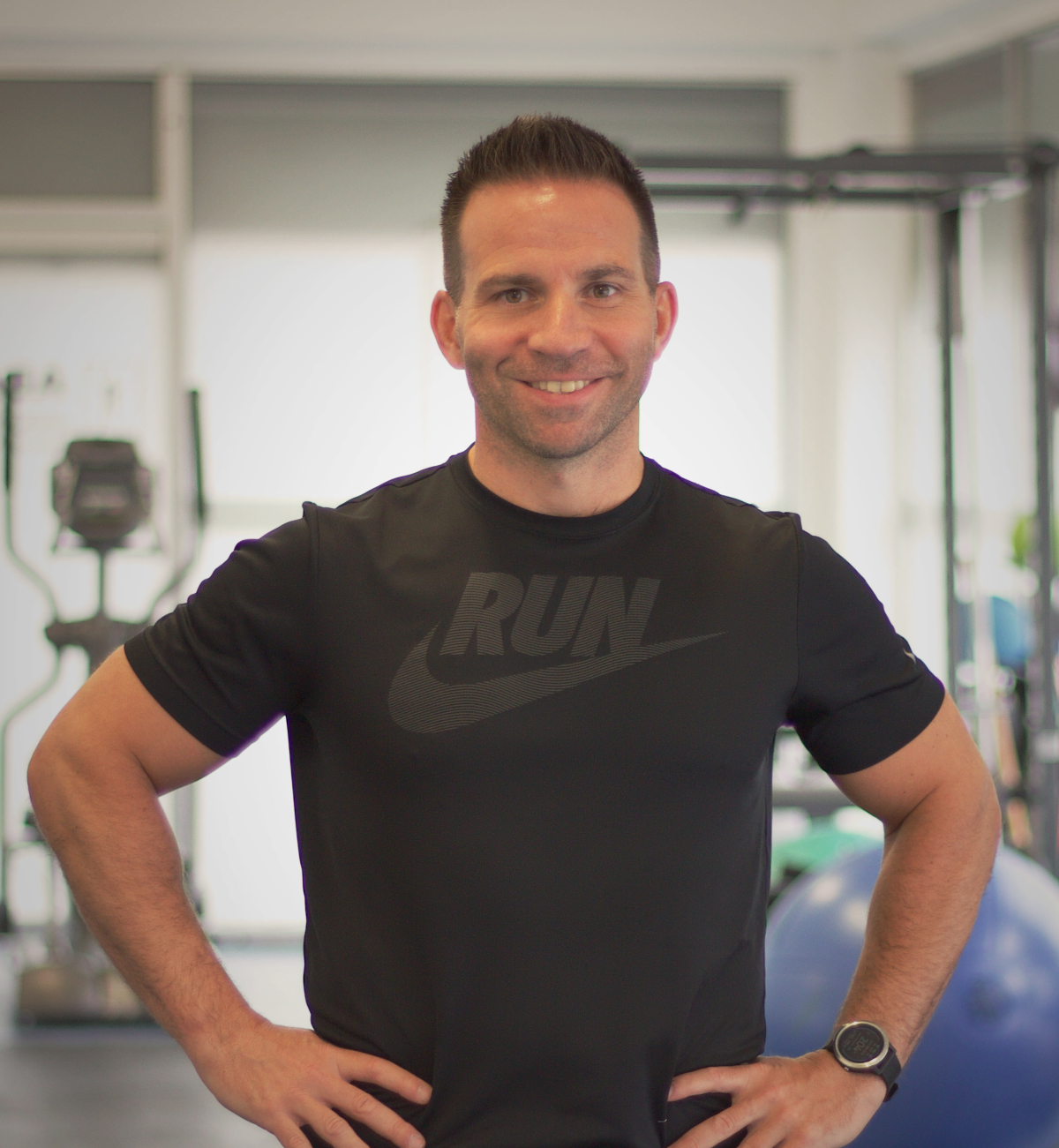Recovery after a workout is essential. In short, training puts stress on our muscles, joints and soft tissues, physically breaking our muscles down. As traumatic as that may sound, this is actually a very normal, healthy part of working out.
Contrary to popular belief, training doesn’t build you up, it actually breaks you down. The ‘breaking down’ of our muscle tissue after intense exercise is a precursor to the ‘rebuilding’ process which is largely supported by the nutritional protein in which we eat. It’s this process of constantly breaking down and rebuilding muscle tissue that allows us to increase strength, muscle size and tone.
The ‘rebuilding’ process is actually most effective when we sleep. If you imagine building a body is like building a house, training is the sand and cement, protein and sleep are therefore the bricks and mortar.
Excessive stiffness, muscle pain, lethargy, low motivation, mood swings, sugar cravings and poor sleep patterns can all be signs of overtraining… This can easily happen when we lack balanced training recovery time. Appropriate recovery after training will provide sustained energy and, most importantly, the results you want to see and feel.
Here are 5 simple solutions to help you create the perfect balance between working hard and repairing your body:
Sleep Well
 Sleep is by far is one of the most important factors when it comes to repairing your body. Procrastinating over bedtime by watching late night TV or consuming high sugar foods or alcohol before bed can disrupt our sleep patterns. This can then cause a disruption to the body’s recovery process and can massively hinder the body’s ability to repair itself properly.
Sleep is by far is one of the most important factors when it comes to repairing your body. Procrastinating over bedtime by watching late night TV or consuming high sugar foods or alcohol before bed can disrupt our sleep patterns. This can then cause a disruption to the body’s recovery process and can massively hinder the body’s ability to repair itself properly.
Get into good habits and plan your bedtime. Make sure you unwind properly before going to bed so sleep comes naturally. Aim for at least seven hours sleep every night and you will feel recharged, rebuilt and ready to take on the world in the morning.
Keep Moving
I’m sure we have all experienced this one; you had a killer workout and now your muscles are screaming at you. So much so, you literally feel like you can’t move. What you are feeling is a process called DOMS (Delayed Onset Muscle Soreness) which essentially is pain caused by the breakdown of muscle tissue. DOMS is perfectly normal and an important part of the repairing process. As counter-intuitive as it may feel, sitting still will offer nothing positive and will actually make your muscles stiffen up even more.
 Your body is designed to move frequently and to be mobile. We all know after a day sat sedentary at a desk will often cause muscle stiffness and joint pain. Now imagine the combination of the pain from DOMS linked with the stiffness from sitting all day. The outcome is not ideal and could leave you wanting to avoid exercise for several days until the stiffness dissipates. The reality is, the stiffness is much more likely to dissipate if you do things to help remedy it.
Your body is designed to move frequently and to be mobile. We all know after a day sat sedentary at a desk will often cause muscle stiffness and joint pain. Now imagine the combination of the pain from DOMS linked with the stiffness from sitting all day. The outcome is not ideal and could leave you wanting to avoid exercise for several days until the stiffness dissipates. The reality is, the stiffness is much more likely to dissipate if you do things to help remedy it.
Aim for movement based ‘Dynamic Stretches‘. These are stretches (which promote muscle movement and joint suppleness) will help ease the pain of your DOMS. When sore after a workout, keep your movements fluid, gentle and consistent over the course of the day for the fastest recovery possible. After 5-10 minutes of dynamic stretching, I guarantee your soreness will feel easier.
Eat for Results, Not Comfort
 We often make our food choices based on what we like the taste of rather than the function in which food serves us.
We often make our food choices based on what we like the taste of rather than the function in which food serves us.
You may train three times a week in the gym… If you eat a breakfast, lunch and dinner with a snack or two in between, you will eat up to 35 times a week. From that perspective; 35 potentially unhealthy meals soon outweigh 3 hours of training time. This can often result with us feeling ‘fit but fat’.
On the flip side, 35 protein packed, calorie controlled meals will repair your DOMS and promote recovery even when you are not at the gym. This will also promote fat loss, resulting with a lean, toned and stronger body.
Your food plan should be high in protein and healthy fats, and low in sugars. For more information on organising your meals and balancing your macronutrients, I would invite you to read my post ‘So, What Should I Eat’.
Reduce Stress
Stress affects us in many ways. There is a strong suggestion when the body is stressed the Cortisol hormone can have a damaging effect on the body which causes muscle breakdown and potential fat storage. The other aspect to consider regarding stress is how we emotionally handle it… Some people comfort eat, some drink alcohol, others don’t sleep well or find both their motivation and mood (in general) is very low. All these scenarios are disastrous for our fitness and training regimes and will have the exact opposite outcome of what we are training for in the first place.
Drink Water
 Finally, a nice simple fix. Drink more water. Our body’s are around 70% water and, therefore, is an essential component to help us function normally on a day-to-day basis.
Finally, a nice simple fix. Drink more water. Our body’s are around 70% water and, therefore, is an essential component to help us function normally on a day-to-day basis.
Without water the muscles become dehydrated, stiff and sore. A sign of dehydration is tiredness and fatigue. The body also sends nutrients to the muscles via the blood which is made up mostly of water.
When you are dehydrated, these facts have huge impact on recovery. Low energy means a slow recovery and disrupted workout schedule. Stiff sore muscles mean your performance and motivation will be reduced (not to mention being in agony unnecessarily). Poor transportation of nutrients means slow repair time, excessive D.O.M.S and potentially poor health.
Aim for an extra litre of water for every hour of intense exercise you complete and don’t forget to drink regularly post-workout. Exercise dehydrates the body through respiration and sweating, so drink lots of water to aid your recovery as efficiently as possible.
Remember, successful training and the results you want to see is determined by a combination of three elements… 1) The training itself and the effectiveness of your workouts… 2) Nutrition and the quality, volume and frequency of your food intake… 3) Recovery and rest.
FACT – Rest is as important as the training itself. Neglecting your recovery time means you are neglecting yourself.


